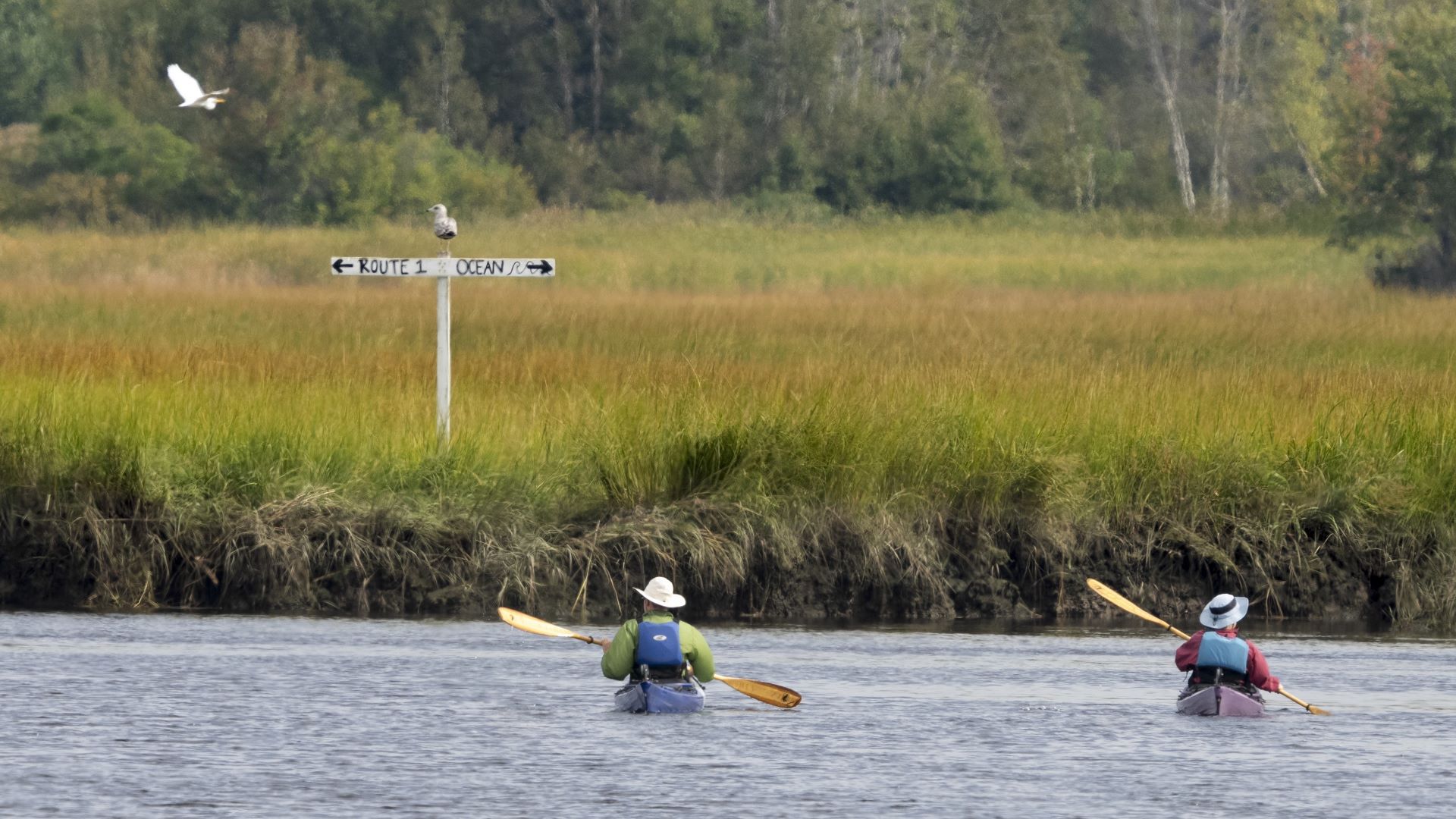Maine salt marshes are a key tool in the fight against climate change, acting as a buffer against storms and soaking up planet-warming emissions. These reservoirs of “blue carbon” can be 10 times more effective at absorbing and trapping carbon than tropical forests.
Marshes are also some of the state’s richest habitats, home to a wide variety of plants, birds and animals. University of Maine researchers once estimated, acre by acre, a healthy salt marsh anchors a food web “more productive than most midwestern farmland.”
For centuries, many of Maine’s coastal marshes were able to slowly build their surface, moving and growing to avoid rising seas.
But as a warming world causes oceans to rise more rapidly and storms to intensify, the marshes are having a harder time keeping up — and as development presses in, they have little place to go.
In this episode of the Let’s Connect podcast hosted by WMPG, host Kristina Egan, executive director of the Greater Portland Council of Governments, speaks with Kate Cough, editor at The Maine Monitor, and Steve Pinette, a retired geologist and a leader in efforts to protect Scarborough Marsh, about the impact of climate change on Maine’s marshes.







